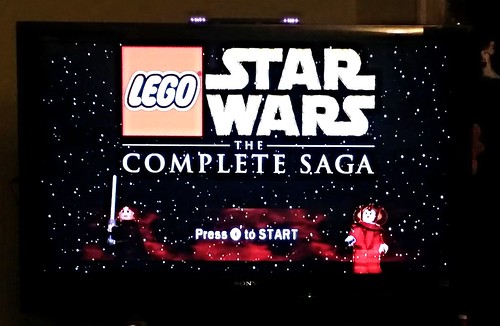Using An Example of Popular Culture (10:36 minutes) as an approach, take a look at some form of popular culture (other than coffee or gaming) from a variety of angles to understand the ways and means people interact with it and make sense of it.
It should be something largely known and recognized so, therefore, you can use specifics to draw out different angles (similar to the coffee where coffee was generic but then discussed different forms of coffee to distinguish different identities).
Some other ideas or areas you might consider (but are not limited to):
- Anime
- Baseball
- Basketball
- Cars
- Comics
- Crafting
- Do-It-Yourself
- Fashion
- Food
- Football
- Hockey
- Movies
- Music
- Music festivals/concerts
- Soccer
- Television
Due Sunday by 11:59pm.
Example: Gaming
I found this week's video on Coffee to be fascinating and got me to thinking about how I consume coffee and what it means to "get coffee" with someone. That lead me to think about other areas of popular culture and one that I participate in quite off, which is "gaming."
Gaming is much more multi-faceted than the six-letter word lets on. First, there is the traditional console-based gaming that occurs on Wiis, Gamecubes, Playstations, etc. While these used to be for singular or dual use, they are now open for much more interaction with players able to join entire community of gamers online through their consoles. Or gamers can also access different and new games rather than buying them at a store. We've moved from a 2-input console (hello Atari joystick!) to consoles that can read your motion (and therefore, change gaming from inactive to a very active past-time).
 |
| After my recent semester finished, I played this for many hours on my Wii. |
We also have mobile games and these too are curious. Some are simply time-killers to occupy us in the in-between spaces of time when we would be twiddling our thumbs or growing impatient with waiting in line. Others like one of my favorites, Ingress, brings us into the physical world to explore it, play with others, and learn more about the world than we knew otherwise. Other games pit us against our friends (Words With Friends) or we look to help out our friends in the game.
There are games with rich and complex graphics that really does make you feel you are in another world or the games wherein you put in hundreds of hours to complete--hours that can feel like "work" but are still somehow rewarding. Such games require an amazing amount of concentration, dedication, and intellect to complete. Other games are equally demanding but don't necessarily have a "complete" phase wherein the person feels they have "beat" the game.
Then, of course, there are the secondary elements of gaming--the critique blogs, vlogs, and podcasts (Geek and Sundry is one of my favorites), the gaming competitions, Twitch tv, LARPing and Cosplaying around video game characters or when video games become movies.
We "play games" for many different reasons: to relax, to engage our brains, to be social and connect with friends, to enter the "zone", and many other reasons. We can often see the word "game" used derisively and yet, the modern gaming world is such a rich world of interaction and exchange among people.
It seems like games are everywhere in our culture and I know that some people see that as a sign of being somehow lesser and yet, I can't help but think about how I've seen games be a place where I make friends, learn more about the world, and even a place that brings me a lot of joy. It requires a variety of skills from hand-eye coordination to social interaction to critical and creative thinking to even physical ability. Thus, I tend to think there's a lot more going on with gaming than many people realize.
No comments:
Post a Comment